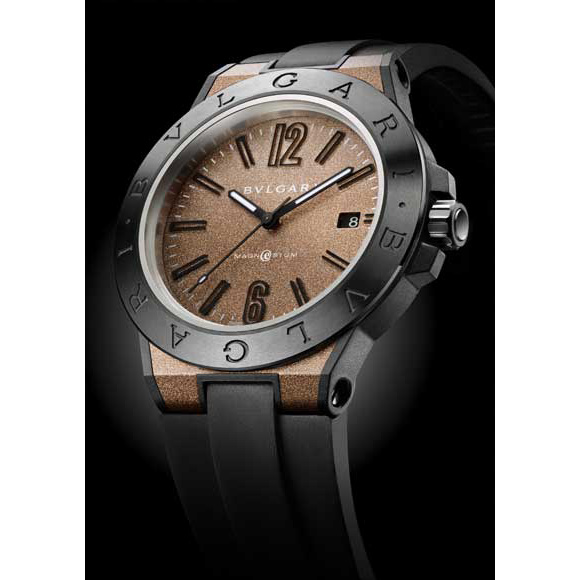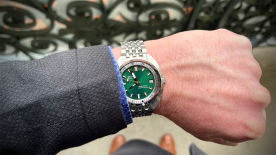As the man responsible for Bulgari’s timepiece division, Guido Terreni has a wider remit than most. Through Bulgari’s partnership with Swiss cybersecurity experts WISeKey, Mr Terreni presented an original fusion of traditional Swiss watchmaking with wearable technology at Baselworld last year in the form of the Bulgari Diagono Magnesium watch, which incorporates an NFC chip in its composite case that can be used to authenticate a user’s credentials with the Bulgari Vault application developed in conjunction with WISeKey.

During the World Economic Forum in Davos, Switzerland, which was held at the same time as the SIHH, Mr Terreni took part in a lunch roundtable hosted by WISeKey with other renowned speakers such as Kevin Spacey, Yevgeny Kaspersky of Kaspersky Labs and Jimmy Wales, the founder of the Wikimedia Foundation. The subject of the round table was daunting: “Cybersecurity for the Internet of Things – The 4th Industrial Revolution”. Or, put more prosaiscally and alarmingly: “50 billion reasons to be concerned”.
50 billion is the estimated number of connected products in circulation that make up the “Internet of Things”, including anything from smart watches to intelligent thermostats. All are capable of interacting with other devices and systems, yet because of the very nature of Internet, there is no common interface for any of them. This is why Apple can happily maintain a closed ecosystem in which all of its devices can interact with each other, store information in a cloud and relay more or less anonymised information about their users to Apple.

Perhaps because of their experience of dealing with a more demanding, more security-conscious clientele, luxury brands have understandably been very careful to address security concerns with their connected offerings. Montblanc’s e-Strap, for example, sends no data to third parties, with the information exchange taking place only between the application on the phone and the strap itself.
Bulgari takes things a step further by aligning itself with WISeKey’s objective to establish a standard for the secure authentication of a person on the Internet. The Diagono Magnesium watch is the first of its kind to incorporate asymmetric encryption (based on a public and private key). But as Guido Terreni explained to WorldTempus, this does not solve the problem of who you are interfacing with. “Even in hotels, with relatively simple NFC applications, there is no common standard,” he says. A further headache comes with ensuring compatibility across the numerous types of smartphone available. Compatibility with iOS and Android is not enough, since there are differences even between the Android-driven devices of Samsung.
It is for this reason that the Diagono Magnesium with its patent-pending technology will not be available commercially just yet, according to Mr Terreni. But when it does become available he sees an opportunity: “One thing that can change people’s view of a watch is the Fourth Industrial Revolution: the Internet of Things.”







